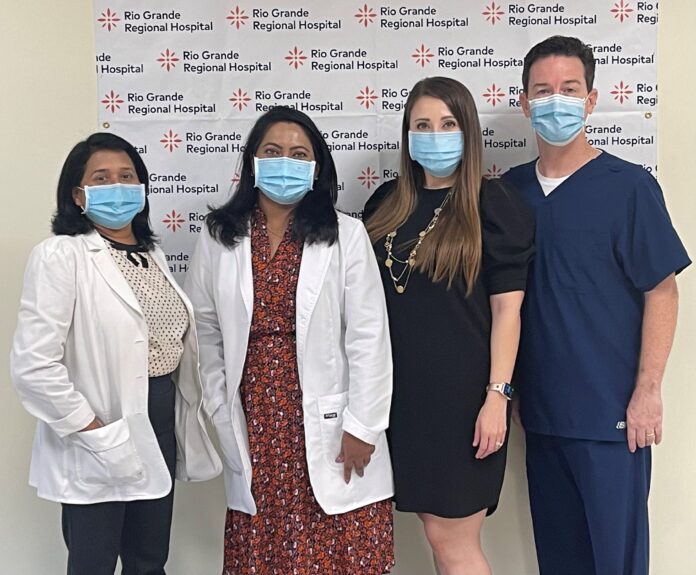
Pictured: RGRH Sepsis Team
Jaya Abraham, FNP-BC, Sheba George, FNP-BC, Claudia Irizarry, Quality Director, Dr. Bret Burton, CMO
World Sepsis Day is recognized on September 13th every year as an opportunity for people worldwide to unite in the fight against sepsis. Sepsis is the body’s extreme response to an infection and delay or failure to start and continue effective clinical management can result in sepsis-related death. Heightened awareness of early identification with a standardized management approach for sepsis is one of the highest priorities at Rio Grande Regional Hospital (RGRH).
To ensure all healthcare practitioners stay up-to-date with the latest evidence-based practice guidelines, the sepsis care team offers simulation-based education and training utilizing Sepsis Scenarios software and a simulator. Simulator training provides the practitioners the ability to acquire the highest level of skills sets necessary in the prevention of sepsis.
Another key component utilized at RGRH is the sepsis algorithm-based alert system called Sepsis Prevention and Optimization Therapy (SPOT). This algorithm continuously monitors data within a patients’ electronic health record and sends alerts to hospital staff and care teams within minutes of identifying any potential signs of impending sepsis. This program provides clinicians with computerized clinical decision support which they can respond at the first moment sepsis is identified.
“The technology named SPOT has been instrumental in helping detect patients most at risk for developing this life threatening infection,” said Dr. Bret Burton, Chief Medical Officer at RGRH. “Not only the technology but the training the clinicians receive, allows our team to raise the bar and provide the community the best healthcare possible.”
The RGRH Sepsis Program is further reinforced by an interdisciplinary approach led by nurse practitioners who adhere to evidence-based sepsis guidelines, work closely with physicians, provide education to patients and their families, and collaborate with the patient’s multidisciplinary team. Continuous education and awareness initiatives help improve patient outcomes and early recognition goal-directed care in achieving optimal quality care.





